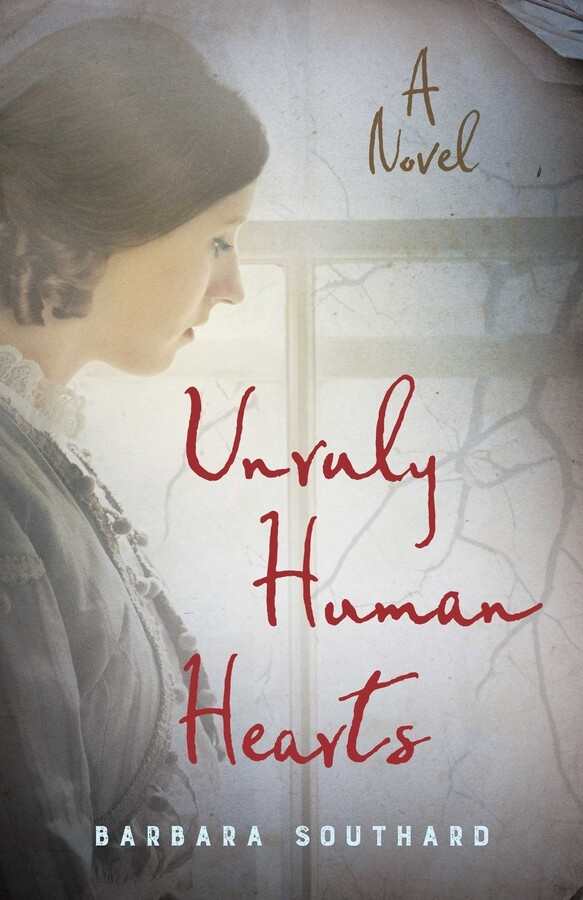Unruly Human Hearts
A strong woman with a penchant for forgiveness navigates the tumult of her complicated relationships in the historical novel Unruly Human Hearts.
In Barbara Southard’s rousing historical novel Unruly Human Hearts, a woman navigates the challenges of the Reconstruction-era US.
About the 1875 adultery trial involving Henry Beecher, Theodore Tilton, and Elizabeth Tilton, the story is told from Elizabeth’s intimate perspective. It covers her complex relationships with her pastor, Henry, and her husband, Theo. In a dreamlike flashback from her deathbed, she covers almost ten years of repeated turmoil and forgiveness in their love triangle, culminating in the dramatic public trial of Henry for adultery.
The prose is direct about outlining Elizabeth’s thoughts and feelings, and its switches between 1897, when Elizabeth is on her deathbed, and the 1870s, when the core story takes place, are immersive on multiple levels. Period language is used for verisimilitude, and the tone is cozy. Details about the trio’s setting are also used to imbue the tragic story with warmth.
The strength of Elizabeth’s character is at the novel’s core. There are moments of eroticism in which she exercises power and agency, refuting her husband’s claims that she was stupid and naive to fall for Henry’s seduction. Elizabeth is also the only one of the three to take responsibility for her actions. She wrestles with guilt and blames herself. She also reminds herself of the good within Henry and Theo, who are both willing to sacrifice Elizabeth to save their own reputations. Her penchant for forgiveness and understanding is conveyed as not a weakness but a strength, further solidifying Elizabeth’s heroine status.
If forgiveness is one of the novel’s threads, the other is hypocrisy. Theo, who supports the suffrage movement, is somewhat self-serving; he advocates for free love and divorce for women so he can sleep with who he wants. In addition, his treatment of Elizabeth is domineering, as though she’s a lesser person, and this fails to align with his public claims toward equality. Henry displays hypocrisy as well, starting as a safe haven for Elizabeth but soon becoming just as manipulative as her husband. Elizabeth is forced to see how hypocrisy corrodes both interpersonal relationships and political action, resulting in added depth.
Letters, court exchanges, and newspaper articles are copied verbatim from historical documents for context. And in addition to the central trio, there are other historical figures present, including Susan B. Anthony—herein a kind, understanding woman who, despite full knowledge of Elizabeth’s mistakes, helps her see her worth, easing the unfairness and hypocrisy coming from Henry and Theo. Such relationships punctuate the novel’s feminist themes.
The riveting historical novel Unruly Human Hearts is sensitive in following a strong woman as she overcomes adversity.
Reviewed by
Anna Karnedy
Disclosure: This article is not an endorsement, but a review. The publisher of this book provided free copies of the book and paid a small fee to have their book reviewed by a professional reviewer. Foreword Reviews and Clarion Reviews make no guarantee that the publisher will receive a positive review. Foreword Magazine, Inc. is disclosing this in accordance with the Federal Trade Commission’s 16 CFR, Part 255.

